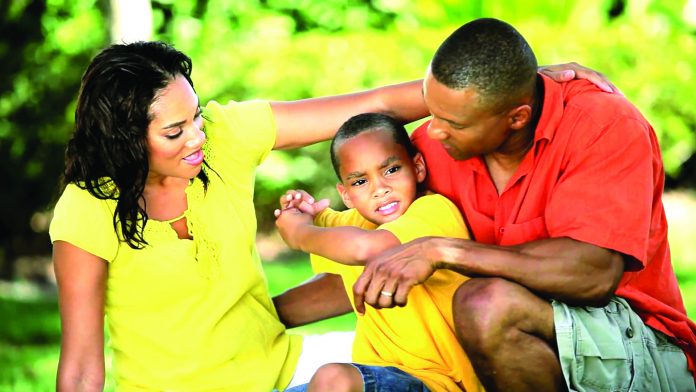By Prof. Bitange Ndemo
For the first time in the history of the world, half of the World is in the middle class or wealthier.
Africa too is making progress. What we have not paid attention to are the consequences of wealth and raising resilient children.
Many of the emerging wealthy people are known to swear that they will never allow their children to experience the kind of life they grew up in. Such statements undermine long term sustainability of the family.
While I have seen parents protecting children as old as 15 years from boarding a matatu to some destination in Nairobi city, at 14 I could travel from Kisii to Nairobi, and change buses to my final destination in Nyeri for secondary education. I then stayed the entire semester in school and somehow showed up at home without ever communicating to my mother if I got to Nyeri in one piece (there were no mobile phones at the time and landlines were rare).
I know that my mother loved me but she wasn’t modern enough to be highly protective of me with her love. In her own way, she was modelling resilience in me. By this I mean the capacity in me to adapt successfully to the challenges that threaten the survival, or future development of myself as a person.
Without it, I will never have been who I am today. Although many of our parents then had little or no education, they were great parents that natured us into useful creations not as eminent psychologists but by wisdom.
Through my own observations, we are failing spectacularly in parenting. In fact, some children have started dictating instructions to their parents and often throw tantrums whenever they are denied their way.
Research by Psychologists say that we must never accommodate every need the child demands. They say that overprotecting children only fuels their fretfulness.
At some point even when they become grownups, it becomes difficult to reverse laissez faire privileges of running the family unfettered.
The Swahili say Mtoto akililia wembe mpe (When a child cries for a razor, give it to him/her). The import of the saying is that a burnt child dreads fire. We invariably learn from experience or what we live.
Hence, parents should never eliminate all the risks from the lives of their children although it is our responsibility to keep them safe. My mother once exposed me to danger but it was the best learning experience that I have ever had in my life.
VILLAGE BULLY
There was this village bully called Mathayo (Kisii for Mathew) who always bullied me. With his many fights and a couple of teeth gone from his mouth, he looked mean and not someone you want to be nearby. One day he chased me to our home. I thought my mom could intervene. She didn’t.
Instead she told me that she gave birth to a boy not a coward. “Get out here and deal with that Mathayo boy,” She ordered me. I had no option but to face him.
I decided to pursue him back but instead of running away, he patiently waited to see what I would do. Like a raging bull, I wrestled him to the ground and gave him a few blows to his face.
With his nose bleeding, he panicked and took off. Since that time Mathayo developed some healthy respect for me. I loved that for once I had the independence to deal with any eventuality.
Unfortunately, that feeling of independence is not widespread. Most of us were trained for employment but we have not changed gears to foster independence in our children to be curious and creative to create their own jobs. We can educate our children to PhD level but if we cannot teach them soft skills like self-motivation, how to relate to other people, responsibility, problem-solving, decisiveness, negotiation, ability to work under pressure and time management, they will continue to be dependent. This can be achieved by not providing all the answers to children.
There is a chance that if you let your child manage the food budget in the house for one week that they will make mistakes. We’ve all made mistakes but it is the best source of learning on how to do things better.
We are often fast in punishing children for the mistakes they make. Our reaction dampens curiosity, an attribute we need to investigate if we want to improve our lives for the better.
ENCOURAGE CHILDREN
Our cultures sometimes assume that our children have no emotions and as such we fail to address or help them manage their emotional development. It is important to ensure that children understand that all emotions are normal and we should work through such emotions as part of our lives.
The desire to be loved by teenagers is real and we all went through the period. They also must know that to be rejected is part of life.
In the recent past some young people have taken their lives simply because either they were rejected by those they are infatuated with or their English Premier League team lost. Life is an ensemble of sadness and happiness.
In most cases we fail to explore talents in our children and make blunders in comparing them with those of our neighbours or friends. Such omissions can lead to serious consequences since we are not all created equal.
I could be a gifted musician but I do not have to excel in academia in order to pursue my dreams.
We usually end up doing exactly that because of our socialisation of placing paper qualification above all other attributes that make us successful human beings.
Raising children is a complex matter that we should constantly revisit and redesign in a changing environment that has far greater implications than what we ever experienced before.
The writer is an associate professor at University of Nairobi’s School of Business



















